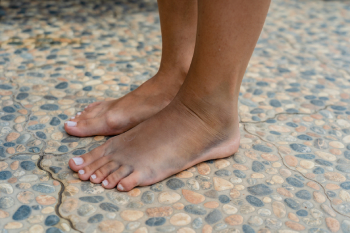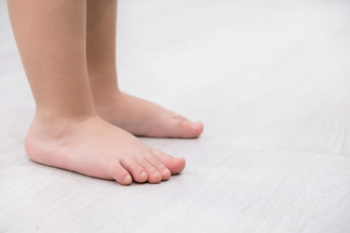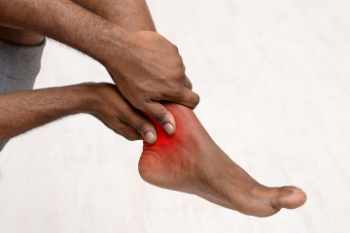
Foot bruises occur when blood vessels in the foot rupture, causing blood to leak into surrounding tissues. The types of foot bruises can include contusions, hematomas, and purpura, each with distinct characteristics and causes. Contusions result from direct injury, such as bumping or hitting the foot, that lead to swelling, pain, and discoloration. Hematomas involve significant bleeding, where blood pools under the skin, often due to more severe trauma. Purpura, on the other hand, occurs without injury and is typically linked to underlying medical conditions, such as blood disorders or infections. The causes of foot bruises can range from minor accidents, such as tripping or wearing ill-fitting shoes, to more serious conditions like fractures or systemic illnesses. Because foot bruises can signal various issues, from simple injuries to significant health concerns, it is essential to seek a medical evaluation from a podiatrist. If you have unexplained bruises on your feet, it is suggested that you schedule an appointment with this type of doctor for an exam, diagnosis, and treatment options.
Wound care is an important part in dealing with diabetes. If you have diabetes and a foot wound or would like more information about wound care for diabetics, consult with one of our podiatrists from Greater Boston Foot Care, PLLC. Our doctors will assess your condition and provide you with quality foot and ankle treatment.
What Is Wound Care?
Wound care is the practice of taking proper care of a wound. This can range from the smallest to the largest of wounds. While everyone can benefit from proper wound care, it is much more important for diabetics. Diabetics often suffer from poor blood circulation which causes wounds to heal much slower than they would in a non-diabetic.
What Is the Importance of Wound Care?
While it may not seem apparent with small ulcers on the foot, for diabetics, any size ulcer can become infected. Diabetics often also suffer from neuropathy, or nerve loss. This means they might not even feel when they have an ulcer on their foot. If the wound becomes severely infected, amputation may be necessary. Therefore, it is of the upmost importance to properly care for any and all foot wounds.
How to Care for Wounds
The best way to care for foot wounds is to prevent them. For diabetics, this means daily inspections of the feet for any signs of abnormalities or ulcers. It is also recommended to see a podiatrist several times a year for a foot inspection. If you do have an ulcer, run the wound under water to clear dirt from the wound; then apply antibiotic ointment to the wound and cover with a bandage. Bandages should be changed daily and keeping pressure off the wound is smart. It is advised to see a podiatrist, who can keep an eye on it.
If you have any questions, please feel free to contact our office located in Plymouth, MA . We offer the newest diagnostic and treatment technologies for all your foot care needs.



 Juvenile arthritis,
Juvenile arthritis,